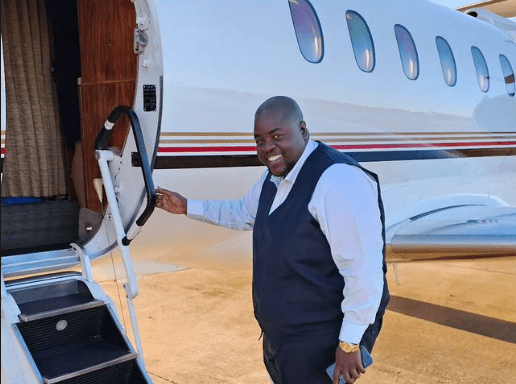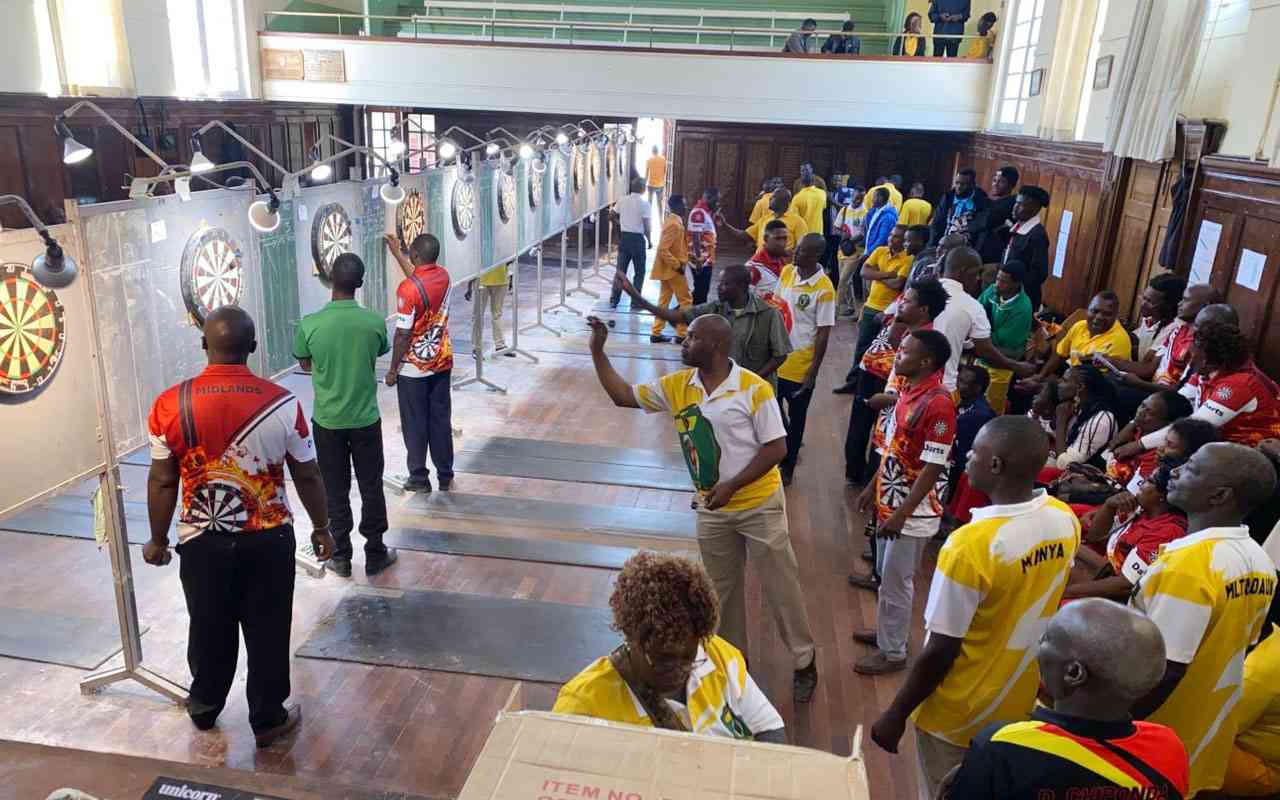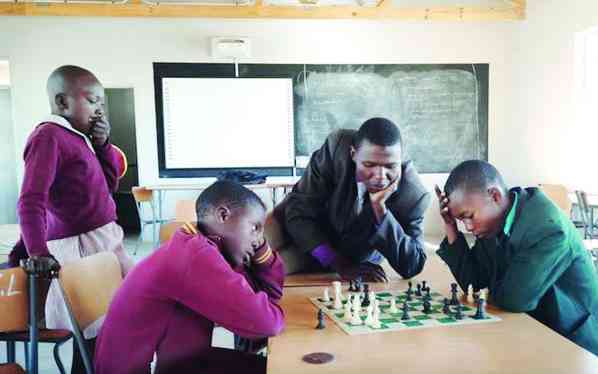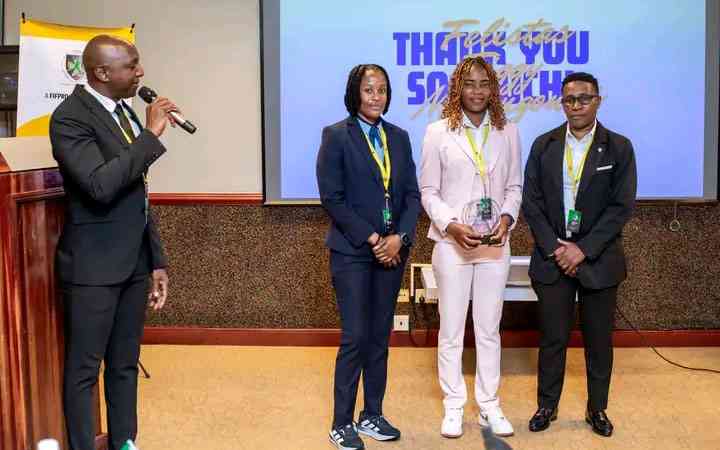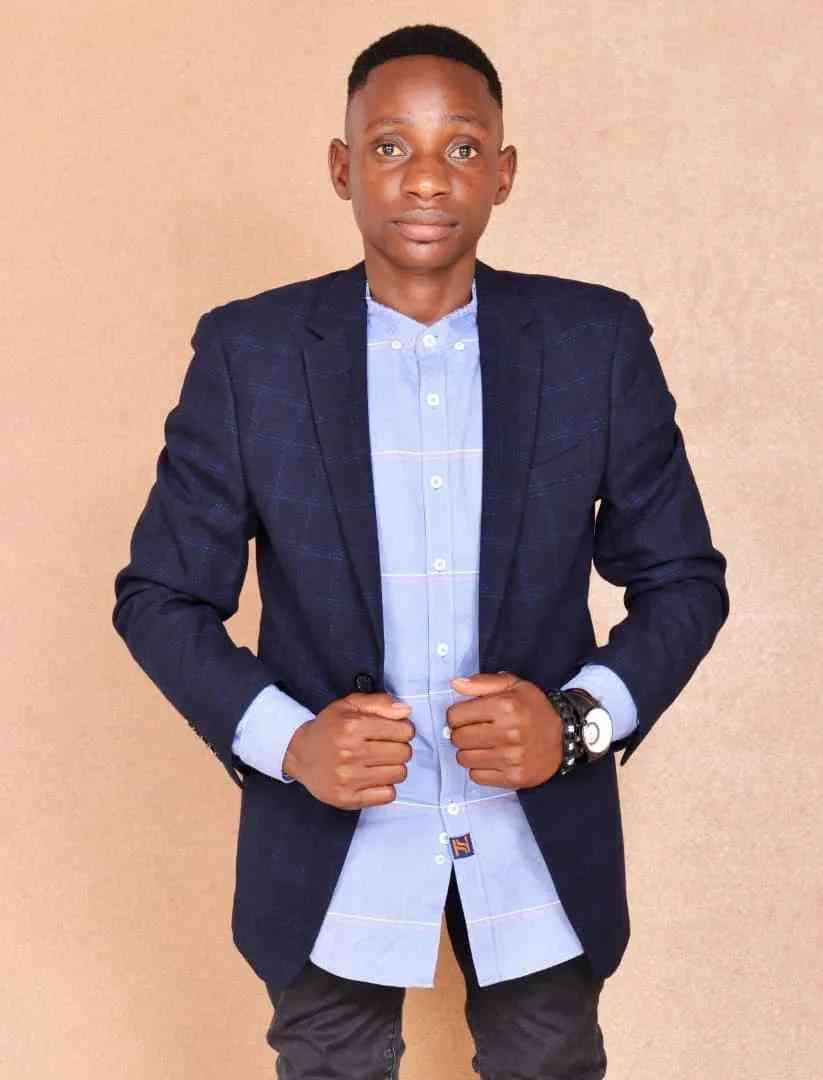
A promising young footballer, saw their career abruptly derailed when faced with a devastating challenge of gender ambiguity. In a world that often demands conformity, their journey to self-discovery and acceptance has been fraught with obstacles.
Yvonne Maiswa, born with ambiguous genitalia (intersex) in 1992, at Madamombe Rural Hospital, in Chihota faced a lifetime of challenges due to societal expectations and medical interventions. Raised as a girl, she endured discrimination, bullying, and confusion throughout her childhood.
Intersex is a term used to describe individuals born with sex characteristics that do not fit typical male or female categories. These differences can involve the genitals, gonads, hormones, or chromosomes. Intersex is a naturally occurring variation in human biology and is not a medical condition.
"My genitalia were not clear, so my parents decided to raise me as a girl, resulting in the name Yvonne. Doctors had no information about my condition and advised that I undergo surgery to 'correct' it. However, there was no solution, and they later suggested that I have the surgery at the age of 15," said Maiswa, who uses the pronouns they/them.
Growing up Yvonne started to realise her difference in genitalia from her siblings.
As she matured, male hormones became increasingly apparent. Despite being assigned female at birth, Yvonne found herself drawn to male-gendered activities and chores. However, societal pressures forced her to conform to traditional gender roles.
"At school, I was bullied and subjected to verbal abuse, including graphic descriptions of my ambiguous genitalia. This deeply affected my life and self-confidence. Despite being raised as a girl and wearing female uniforms, I couldn't use the girls' restroom, and I lacked confidence.
As I entered adolescence, male hormones became more apparent, and I didn't experience menstruation like other girls. I realized I was living a lie but couldn't find the courage to stand up for myself," they said.
- All set for Bosso, DeMbare blockbuster
- Bosso reclaim Uhuru Cup
- Rambanapasi sets up thriving building supplies business
- Rambanapasi sets up thriving building supplies business
Keep Reading
A turning point came when Yvonne's exceptional soccer skills led to a humiliating incident during a team change. Forced to strip naked in front of her peers, she experienced further trauma and confusion about her identity.
"I was on the school's football girls' team and demonstrated exceptional skills and high performance. Opponents demanded that I strip naked to verify if I was a girl.
"I refused to comply with this demand and was punished for running away, unable to explain my reasons," they said.
At the age of 15, Yvonne underwent "correctional surgery" to align her physical appearance with her assigned gender. Unfortunately, the surgeries were unsuccessful, leaving her with chronic pain, permanent scars, and deep psychological trauma.
The surgeries, intended to make Yvonne female, conflicted with her underlying male hormones. Yvonne later realized that these procedures were a violation of human rights, as children are often subjected to them without their informed consent.
"Despite repeated examinations of my genitalia, it didn't change the fact that I am intersex, a characteristic that is part of my identity. The surgery actually harmed me, and the effects are irreversible. I feel that my human rights were violated when they attempted to remove my micro penis and construct a vagina, which was unsuccessful.
"In college, I pursued my football talent, but the problems continued. I loved football and knew it was my God-given talent. However, I had no choice but to quit.
"Eventually, I met another intersex person and realized I was not alone in the world. I accepted that being intersex was not a bad thing," added Maiswa.
Seeking to live authentically, in her early 20s, Yvonne eventually transitioned to living as a man. Adopting the name Kudakwashe, they became an advocate for intersex rights and the redocumentation of intersex individuals on national IDs and passports.
"I researched my birth and discovered that my late father had intended to name me Kudakwashe. I then transitioned to male and adopted the name Kudakwashe."
Unfortunately during her transitioning year , her mother passed on. Family members went against the idea and called him with all sorts of derogatory names.
"Since my transition, I have lived the best life possible. I am no longer hiding and have developed genuine friendships. I am free and happy to be myself," they said.
Kudakwashe is the acting Director of the Intersex Community of Zimbabwe, an organisation which advocates for rights of intersex people.
Many intersex individuals face difficulties accessing public services due to discrepancies between their identity documents and their physical appearance.
"Accessing public services can be challenging. In my case, I was assigned female at birth, and my documents reflect that. Every time I travel, I experience delays while trying to explain my identity. The process is tedious as I am required to recount my life story.
"Due to my mixed characteristics, I even have trouble using public restrooms. Once, I failed to get a job because my curriculum vitae did not align with my physical appearance.
As an organization, we are working to raise awareness in hospitals from birth. We provide peer support to one another and advocate for legal recognition of intersex as a third sex marker. This would help end the stigma and the practice of early surgeries, which force children to conform to male or female.
"Children should be allowed to develop naturally and undergo surgery later in life, with their consent and after they understand who they truly want to be," they said.
Mpilo Hospital in Bulawayo resumed 'corrective' surgeries for intersex in 2023, after stopping them temporarily due to COVID-19. However the hospital's clinical Director Professor Solwayo Ngwenya said patients haven't been forthcoming.
"Patients are not forthcoming due to negative publicity and misinformation surrounding the surgeries," he said.
Speaking to the media, Dr. Norman Matara, a medical doctor, of the Harare-based Zimbabwe Doctors For Human Rights, said they are in the process of engaging doctors against carrying out such surgeries when they are not necessary.
"We do not advocate for these surgeries,” said Matara. “It's a form of violation especially because they are mostly conducted on minors who do not have a voice at that time.”
While Zimbabwean laws do not recognize intersex individuals, neighboring countries have made progressive strides in legal protection. South Africa, for example, has laws safeguarding intersex people from discrimination, harassment, and hate speech.
Moreover, in South Africa, Botswana, Eswatini, Lesotho, and Namibia, intersex individuals have the legal right to change their name and sex on birth certificates to align with their preferred gender identity.

